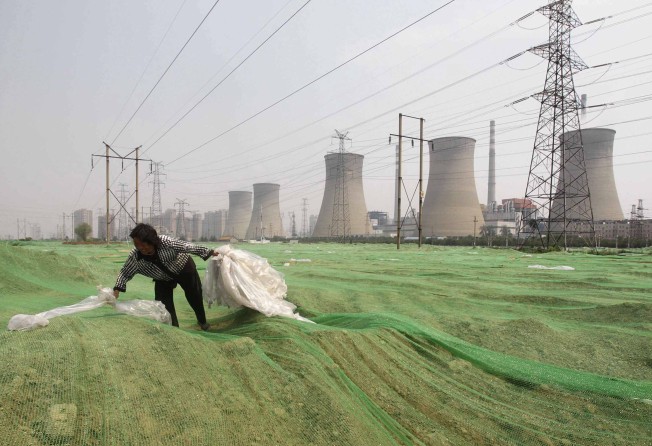China passes new law to strengthen nuclear safety
Regulator to be given more powers and systems set up to improve information disclosure as new reactors are built across the country

China’s parliament passed a new nuclear safety law on Friday aimed at improving regulation in the nuclear power sector as new projects are built across the country.
Officials say the law will give more powers to the regulator, the National Nuclear Safety Administration (NNSA), and establish new systems that will improve the disclosure of information on issues like radiation, and prevent or minimise risks from nuclear accidents.
“It fully embodies our ‘safety first’ approach and reflects our image as a responsible power, and also our strong determination to develop nuclear energy and the use of nuclear technology using the highest safety standards,” NNSA vice-head Guo Chengzhan said at a briefing on Friday.
China is in the middle of an ambitious reactor building programme aimed at bringing total nuclear capacity to 58 gigawatts by the end of the decade, up from 35 gigawatts now.
But weak and opaque governance has long been seen as an industry problem, especially when it comes to determining the precise roles of the government, the military and state-owned nuclear enterprises on issues such as the handling of nuclear materials and the disposal of spent fuel.
Guo said the new law focused on strengthening China’s nuclear safety regime, and would create “institutional mechanisms” and a “division of labour” among regulators and enterprises to clarify responsibilities for safety.
Officials have repeatedly said China’s nuclear industry has not experienced a single major accident or serious radiation incident in the 25 years since it connected its first reactor to the grid, making it far safer than coal.
But the decision to construct dozens of new projects, many using advanced and untested “third-generation” reactor designs, has put the government under pressure to improve regulation and build public trust in nuclear power.
China also needs to expand its waste processing capacity and train hundreds of new technicians and safety staff.
Mark Hibbs, senior fellow of the Nuclear Policy Programme at the Carnegie Endowment for International Peace, said China had until now not addressed the legal authority of the NNSA, a relatively under-resourced division of China’s environment ministry.
“People outside of China will commend and applaud the passage of legislation that empowers legally, without any doubts, the regulator to be responsible and to be authoritative,” Hibbs said.